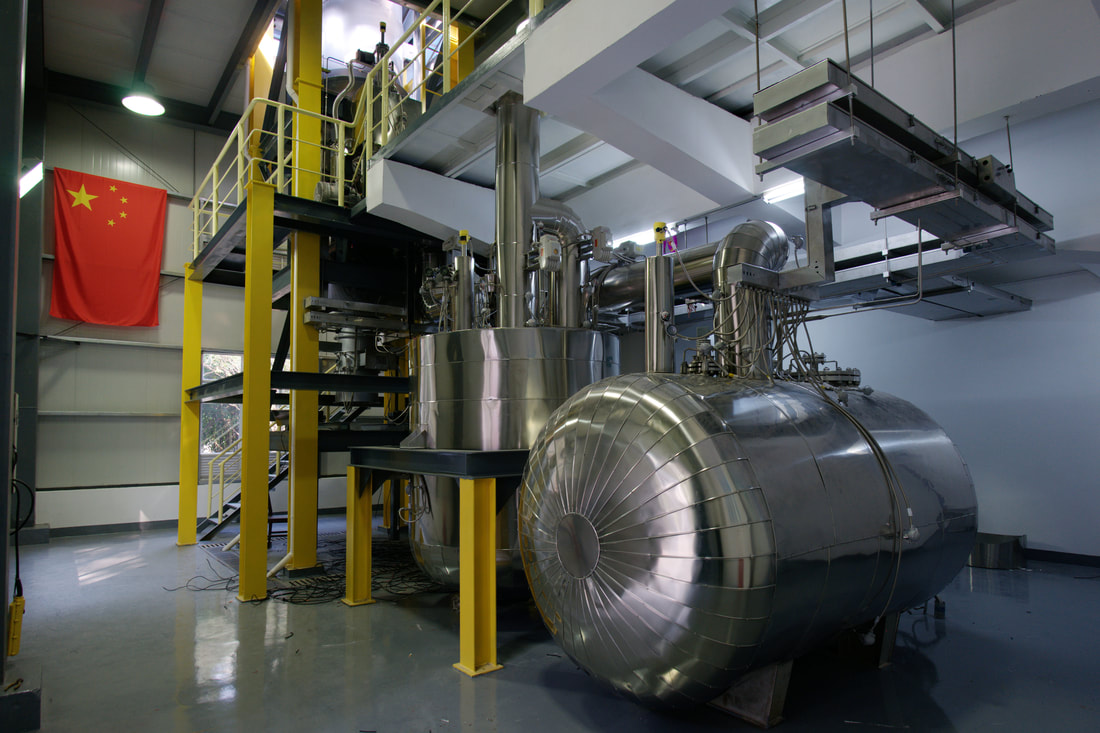Statement from American Nuclear Society President Steven Nesbit and Executive Director/CEO Craig Piercy on passage of Illinois Senate Bill 2408:
"The American Nuclear Society welcomes passage of legislation to secure Illinois' clean energy future by preventing the slated premature closures of Bryon and Dresden nuclear power plants. Over 4.3 gigawatts of irreplaceable carbon-free nuclear power and more than 1,500 jobs at the nuclear power plants have been saved.
Nuclear energy ensures clean energy jobs for working Americans, write the International Brotherhood of Electrical Workers and the American Nuclear Society in Op-Ed.
The Biden administration’s climate goals will be met only by expanding carbon-free nuclear energy production, urge the American Nuclear Society (ANS) non-profit and the International Brotherhood of Electrical Workers (IBEW) labor union in a joint Op-Ed.
A satellite image of Hawaii. Image: NASA
Jacob Wiencek, a self-described concerned resident of Honolulu, is doing his part to encourage the state of Hawaii to embrace nuclear power. An opinion piece written by Wiencek was published in Honolulu Civil Beat, an online, nonprofit news site, on August 4.
The right side of the cooling tower of MIT’s reactor has the new system installed, eliminating its plume of vapor, while the untreated left side continues to produce a steady vapor stream. (Image: MIT/courtesy of the researchers)
The white plumes of steam billowing from the cooling towers of nuclear power plants and other thermal power plants represent an opportunity to some—the opportunity to collect a valued resource, purified water, that is now lost to the atmosphere. A small company called Infinite Cooling is looking to commercialize a technology recently developed at the Massachusetts Institute of Technology by the Varanasi Research Group, whose work is described in an article written by David L. Chandler, of the MIT News Office, and published on August 3.
This still image from “The Green Atom” highlights how Germany’s decision to shut down its nuclear plants has resulted in electricity that is twice as expensive as in neighboring France. (Source: Kite and Key)
“You know what power source is more dangerous than nuclear? Literally, all of them. When you add up industrial accidents and the effects of pollution, nuclear is safer than coal or petroleum or natural gas.”
China’s molten salt loop experiment. (Photo: Thorium Energy World)
China is moving ahead with the development of an experimental reactor that would be the first of its kind in the world and “could prove key to the pursuit of clean and safe nuclear power,” according to an article in New Atlas.
U.S. Nuclear Regulatory Commission headquarters (photo: U.S. NRC)
The Nuclear Regulatory Commission has halted efforts to consider allowing U.S. nuclear power plant owners to request 40-year license renewals for their facilities, the agency announced on Facebook and Twitter on July 2. Currently, the maximum potential operating lifespan for a plant is 80 years: 40 years with the original license, 20 more with an initial license renewal, and another 20 with a second renewal.








 On August 4, the Clean Air Task Force (CATF) released a white paper,
On August 4, the Clean Air Task Force (CATF) released a white paper, 




